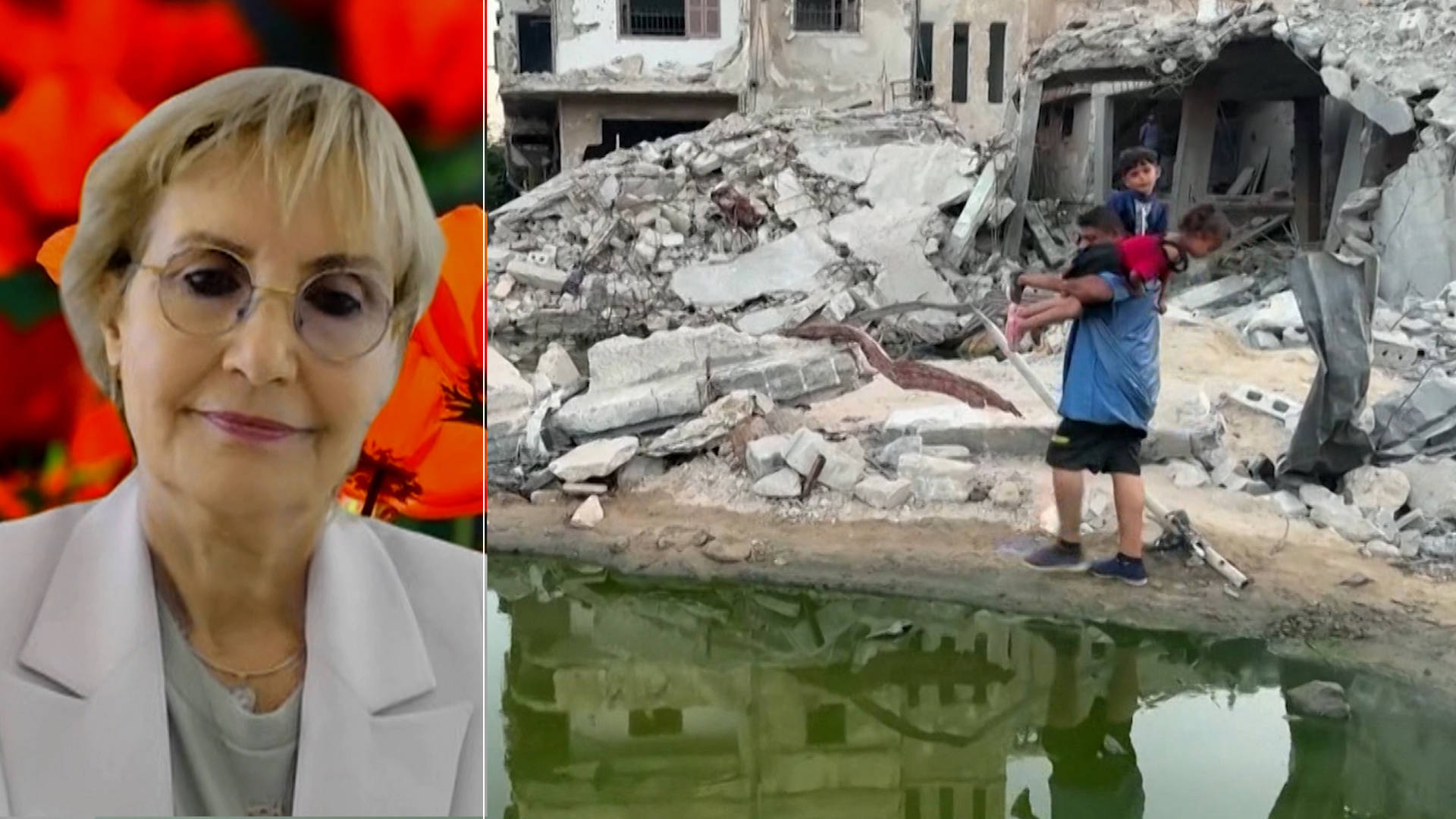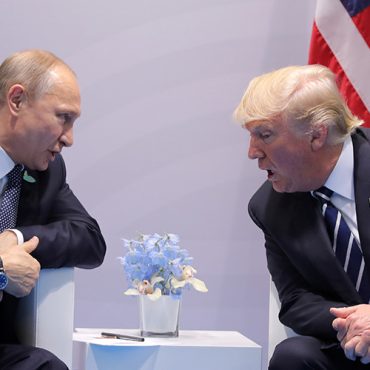This is a rush transcript. Copy may not be in its final form.
AMY GOODMAN: This is Democracy Now!, democracynow.org. I’m Amy Goodman, with Juan González.
Israel’s military says it’s begun vaccinating its soldiers against polio after the paralytic virus was found in a number of wastewater samples in Gaza. The World Health Organization warns the risk of further spread remains high while Gaza’s children go unvaccinated during Israel’s assault, which has devastated Gaza’s water and sanitation infrastructure. Public health officials have called it a major setback for global efforts to eradicate polio.
For more, we’re joined in Be’er Sheva in Israel by Dr. Dorit Nitzan, professor and director of the masters program in emergency medicine-preparedness and response at Ben-Gurion University. She’s also the former regional emergency director for the World Health Organization’s European office. She co-authored a piece by eight Israeli doctors in Haaretz on Sunday headlined “Cease-fire. The Only Way to Prevent a Polio Epidemic Among Gazan and Israeli Babies.”
Thank you so much for being with us, Doctor. If you can start off by explaining what the situation is in Gaza right now and what you’re calling for?
DR. DORIT NITZAN: Thank you very much. And really, thank you for paying attention to this important public health risk and issue.
In Gaza now, we don’t — we are not there, and it’s hard for us to imagine what both babies, newborn babies, their mothers, kids are going through. But what we know is that sewage samples that arrived to Israel, collected in Gaza for analysis, revealed the existence of a vaccine-derived polio there. And this is something that is expected in such conditions.
JUAN GONZÁLEZ: And, Doctor, could you talk about what that potentially means, especially given the fact that infected individuals can show no symptoms for weeks?
DR. DORIT NITZAN: Yes. So, right now we don’t know — fortunately, we don’t know of any polio patients in Gaza. But we anticipate that it will come. We know that behind each polio patient, there are about hundred and more people that are not symptomatic, meaning that it takes time for the symptoms to appear. This sewage system is a very good, sensitive marker for that. So, knowing that it is there and it might appear, then the circumstances and the conditions of the healthcare, the health services is so bad that we are really, really worried for these kids.
AMY GOODMAN: Dr. Dorit Nitzan, the Israeli government has begun a major vaccination campaign for Israeli soldiers. They say there are some vaccines available for Palestinians, but throughout Gaza, hospitals have been destroyed, have been bombed. The healthcare system is in shambles. Talk about why you say that the prescription right now for what’s happening is a ceasefire.
DR. DORIT NITZAN: Yeah, the prescription is ceasefire, vaccines and good public health conditions. This is — you know, it’s a full prescription that comes in. What we know, that for the past 20 years, with Israel’s support, Gaza and the West Bank have succeeded very high rates of vaccinations, including for polio. So, the older kids should be OK. Those who were born just before October 7th and after are at risk. And for that, ceasefire is needed, because we need to get — the humanitarian workers, the health workers, the nurses need to get to each and every baby and each and every adult that has not been vaccinated in the past, and vaccinate them. And that should be done under secure conditions. It cannot be done under war.
JUAN GONZÁLEZ: And you mentioned other global conflicts that have demonstrated the potential for the spread of polio. Can you talk about some of those conflicts that have occurred?
DR. DORIT NITZAN: Yes. We know that in every country where there is a conflict, there is a risk for outbreaks, including polio, cholera, other foodborne diseases, respiratory diseases, as well as exposure to chemicals and others. But polio is one of them. And we saw it in Ukraine, in Ethiopia and in many other countries, in Syria, etc. We know that the viruses and the bacteria and the toxic materials know no borders, and they actually go across borders, as we saw in Iraq from Syria, etc. Therefore, it’s not only the kids in Gaza. It’s also the Israelis. And it is important to vaccinate the kids as soon as possible, those who are exposed to them, the humanitarian workforce, the health workforce in Gaza and here in Israel.
AMY GOODMAN: As we wrap up, Dr. Nitzan, as you know, your prime minister is in the United States. He’s going to give an address, joint session of the U.S. Congress. And I’m sure you follow the politics here. Now Kamala Harris is the presumptive Democratic nominee for president. Your message to her and to him?
DR. DORIT NITZAN: Yes, my message is to go beyond politics. We do understand that there are deep, deep divides here. The 7th of October was terrible, and I do understand. Right now we do not want to risk the kids on both sides and in every place, in any place. We want to take a break and stop it and make sure that every child has access to the vaccines.
AMY GOODMAN: Dr. Dorit Nitzan, we want to thank you for being with us, director of the masters program in emergency medicine-preparedness and response at Ben-Gurion University, former regional emergency director for the World Health Organization’s European office. We’ll link to the article you co-wrote with a number of Israeli doctors headlined “Cease-fire. The Only Way to Prevent a Polio Epidemic Among Gazan and Israeli Babies.”











Post comments (0)